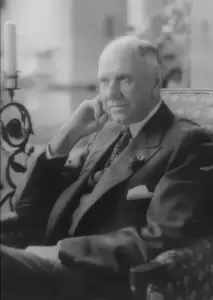Hotel Life: Bradley’s Beach Club
Beginning in 1898, the guests of the Royal Poinciana Hotel and The Breakers were within walking distance of a major new attraction: Bradley’s Beach Club, a gambling casino and restaurant. Colonel Edward Riley “E. R.” Bradley and his brother, John “Jack” Bradley, built the Beach Club just north of today’s Flagler Memorial Bridge, on land purchased from then-State Senator Elisha Dimick. E. R. Bradley was most associated with the club and eventually bought out his brother.

Once Bradley decided to let women gamble, the venture prospered and became what many considered the world’s finest gambling casino. In the earlier years, roulette and hazard were the only games offered. Later chemin de fer was added, a variation of baccarat, with a $5,000 limit. Although gambling was illegal in Florida, the Beach Club circumvented that technicality by operating as a private club. Security was provided by men recruited from the Tennessee mountains.
The club was very simply decorated in green and white, with lighting that Bradley said flattered a woman’s complexion more than harsh, bright lights.
In the dining room, which seated up to 212 people, Bradley wanted the best food, no matter what it cost. They ordered “most everything” from New York, said Bradley’s long-time secretary Tom Bohne, where chef Gene Braccho went each fall to collect menus from the best restaurants. The Beach Club then charged the highest New York prices plus ten cents, but still lost money on the dining room.
Drinking and smoking were not allowed in the gambling rooms, only in the dining room, where the headwaiter would oversee the consumption of alcohol. “It was difficult to control,” said Bohne, especially during Prohibition, when diners brought their own beverages: “They would be called to the telephone [and Bradley would] meet ‘em and say, ‘Young man, you’re drinking a little heavy tonight. Come back tomorrow and everything will be settled.’ If the fella got unruly, he was out. But it was done in a nice manner.”
Everyone seems to think, and he probably did, [E. R. Bradley] had to pay off officials, but I was with him 20 years and during that time, I could swear that I never saw him pay anyone a penny of [bribery]. Yes, he was raided several times, but they was [sic] always tipped off and he had everything hid away, and … the guests would sit down and drink tea at the tables. … And they would all join in the fun while the inspector from the governor’s office would go around and search the place—not too methodically, but search the place. The [gambling] tables all folded up and looked like a tea table when they took the layout off of them. Harry Redifer built the [hiding] places for them.
Tom Bohne, Secretary to E.R. Bradley
Bradley’s Beach Club: The Rules of the Game
Only gentlemen were allowed membership. A woman had to be escorted at all times by a gentleman member. No one under 26 years old was permitted in the club, even in the dining rooms. Bradley’s logic was, a young man was likely to claim he was 22, thinking that 21 was required, so they would know he was not 26.
Harry Redifer
Many a time when the customer would win, why, he’d be tickled, he’d really be pleased, because so many would lose during the Season … anyway. If [a member] could get some pleasure out of it, extending his time at the table and being seen and enjoy passing checks back and forth, that was [Bradley’s] idea of entertainment. And that’s just what it was.
Harry Redifer
Invited Guests
Secretary Thomas Tipton “T. T.” Reese was an early Beach Club employee who had come to Palm Beach with the railroad and worked at the Royal Poinciana Hotel. In 1962 Reese’s son T. T. Reese, Jr. related childhood memories of Col. and Mrs. Bradley, who lived in a large stone house on the north side of the club:
I had a little stand down there, I mean a few packing boxes, and I used to sell fruit and flowers and coconuts and things right in front of the club. Colonel Bradley let me do that, y’know. And Auntie [Agnes] Bradley, of course, his wife, she was a wonderful lady. Every afternoon about 5:00, we’d close up the little packing boxes and get ‘em all bundled up and put ‘em in the wagon to take home, and she’d invite us up to the house to have … Baked Alaska [and] macaroons [from Majewski’s Bakery on Clematis Street]. And we’d sit there in the living room, y’know, dirty little kids, barefooted as yard dogs, on beautiful rugs.

